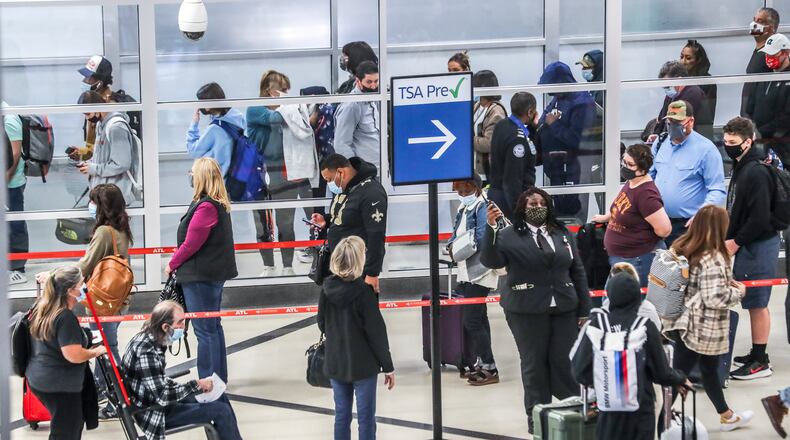Delta Air Lines said Tuesday it is seeing strong demand for air travel, even as rising fuel costs in the wake of Russia’s invasion of Ukraine are expected to drive up air fares.
The Atlanta-based airline said in an update for investors that its sales in early March were higher than 2019 levels, setting a daily record for sales last week, and that it sees “strong spring and summer travel demand.”
Delta added it is “well positioned to recapture higher fuel prices,” indicating it plans to pass those higher costs along to customers.
Air fares were already increasing this year on stronger demand and higher fuel costs even before the Russia-Ukraine war began, according to travel booking app Hopper. If the Ukraine conflict continues, it is expected to drive up summer travel fares even more.
Delta President Glen Hauenstein said during an investor presentation that fuel price hikes would increase costs by about $15-$20 each way on an average ticket value of $200.
Compared with ultra low-cost carriers, Hauenstein believes Delta, with its “premium product focus,” has target customers that are less price sensitive or financially pressured by higher prices at the pump.
Delta raised its revenue forecast for the first quarter of 2022 to 78% of 2019 levels, up from 72% to 76%, as air travel continues to rebound from a steep drop early in the pandemic.
But Delta, which owns an oil refinery, will still pay significantly more for fuel. The airline expects to pay $2.80 per gallon for fuel this quarter, up from its previous estimates of $2.35 to $2.50, and up a third from $2.10 in the December quarter.
Jet fuel prices last week were up more than 80% compared with a year ago, according to the International Air transport Association. Fuel prices already had been rising in recent months and Western sanctions against Russia, a major global supplier of crude oil, have driven them even higher.
The rise in fares is typically not as rapid as the spike in gas prices at the pump. Costlier airline tickets could dampen demand and cause airlines to be more cautious about adding back more flights in the recovery from the effects of COVID-19.
Delta said it will take a “disciplined approach to capacity,” keeping it at at 83% of 2019 levels this quarter, the low end of previous forecasts. By limiting supply, airlines may be able to charge higher fares and still fill planes with those willing to pay more to travel.
Pilots at Delta have raised concerns about the number of flights the airline has added back to its schedule, saying they have been asked to work too many hours. Hauenstein said Tuesday the company will work to give pilots more time off and schedule flexibility as early as this fall.
“Every work group has probably worked more in the rebuild than they like to, and we’re committed to getting the staffing levels right over time,” he said.
Delta still expects to report a loss for the first quarter, and for the full year of 2022 aims to report a “meaningful profit.”
About the Author
The Latest
Featured



